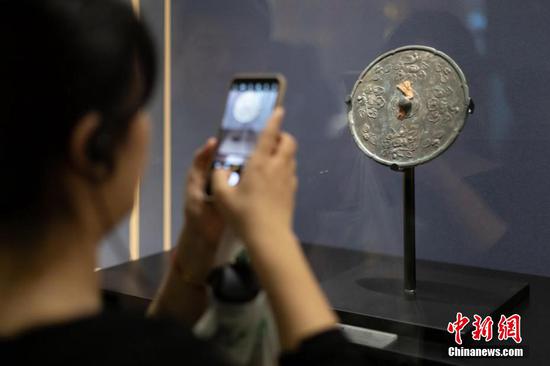
NIO's battery-swap station in Ulm, Germany, is put into operation earlier this month. (CHINA DAILY)
EVs ride consumer support, networks, facilities to grow global market share
Gunnar Birkenfeldt, co-founder of an automobile information company in Norway, is a big fan of cars. Before the advent of electric vehicles, he used to drive fossil fuel-powered BMW and Porsche. Later, he graduated to Tesla. Two years ago, he bought a Chinese-made, NIO-branded electric SUV.
"Back then, I got three kids and I wanted a spacious car … When this opportunity popped up, I thought it'd be very interesting to try out new things," Birkenfeldt said of his decision to buy a NIO SUV.
The ES8 model's feel and touch surprised him, he said. "NIO is a very ambitious company. They are very customer-centric and focus on lifestyle and ecosystem around the car. I've no trouble in recommending Chinese cars to anyone because they work and ride perfectly well."
Birkenfeldt's hearty endorsement of Chinese-made cars shows the globally expanding carmakers of China are leaving no stone unturned in their bid to win over European consumers even as competition in the domestic market intensifies.
A report from consultancy KPMG forecast that Chinese carmakers are expected to capture around 15 percent of Europe's EV market by 2025, as established players such as BYD and emerging companies such as NIO and Li Auto gain popularity among European consumers.
This would mark a big step forward as Chinese marques accounted for less than 10 percent of the 1.1 million battery-powered EVs sold in Europe in 2022, KPMG said.
Kevin Kang, chief economist at KPMG China, said, "Homegrown Chinese brands have huge potential in the European market and could contribute the most to future sales increase there."
Europe is the world's second-biggest and fastest-growing EV market after China, and is expected to see surging demand for EVs following the European Union's announcement that it will ban the sale of new fossil-fuel cars from 2035 to combat climate change.
Europe accounted for about half of the 1 million new energy vehicles that China exported last year, according to the KPMG report. NEVs include BEVs, plug-in hybrids and fuel-cell vehicles.
With its affluence, environmental consciousness and relatively friendly attitude toward China, Europe is a priority destination for Chinese electric car manufacturers seeking a global footprint, experts and company executives said.
Within Europe, Belgium imports the largest number of Chinese-made NEVs. Most Chinese car companies choose to transport their vehicles to other European countries through Belgium, the KPMG report said.
Although Norway imports fewer NEVs from China, it has friendly policies, high market inclusiveness, complete charging facilities, and convenient port conditions, making it a bridgehead for Chinese car companies to go to Europe, KPMG said.


















































 京公网安备 11010202009201号
京公网安备 11010202009201号